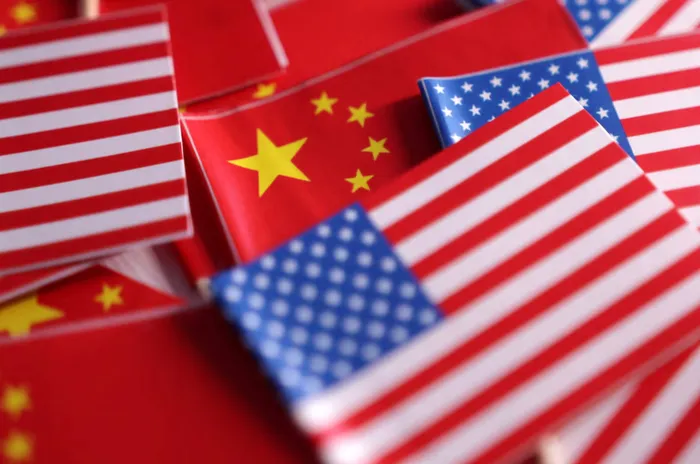
American importers have warned that the sharp increase will ripple through supply chains, especially in sectors dependent on critical materials that are mostly refined and exported from China.
Image: REUTERS/Dado Ruvic/Illustration
With Washington once again reaching for tariffs as a political lever, China is taking a firm but measured stand in defence of its economic sovereignty. In response to U.S. President Donald Trump’s latest threat to impose 100 percent tariffs on Chinese imports, Beijing is calling for restraint and dialogue, even as it signals readiness to protect national interests.
At the centre of the growing dispute is China’s recent move to tighten controls on the export of rare earth technologies — vital components in advanced electronics, defence systems, and green energy production. Washington has accused Beijing of using its dominance in rare earths for strategic leverage. In turn, Chinese officials have dismissed that claim as unfounded and say the new rules are both legal and necessary in the current global environment.
“Export controls on sensitive technologies are a legitimate tool of national security,” a spokesperson from China’s Ministry of Commerce said Monday, defending recent regulatory steps. “Unilateral tariff escalation is not the answer.”
The tariff threat, set to take effect on November 1, could dramatically increase the cost of Chinese goods in the U.S. and deepen uncertainty in global markets. American importers have warned that the sharp increase will ripple through supply chains, especially in sectors dependent on critical materials that are mostly refined and exported from China.
Rather than responding in kind with sweeping counter-tariffs, Beijing has adopted a more strategic tone — highlighting its commitment to stability and global cooperation. Still, the message from Chinese authorities is clear: China will not be pressured into concessions.
State media outlets have echoed that sentiment, labelling Washington’s threats as “economic coercion” and “typical of outdated Cold War thinking.” Commentators noted that China’s rare earth policies are designed to ensure sustainable development and prevent misuse of sensitive technologies, especially in the face of mounting geopolitical risks.
The latest standoff comes just weeks ahead of the Asia-Pacific Economic Cooperation summit, where a long-anticipated meeting between President Xi Jinping and Trump now appears uncertain. Trump has suggested he may cancel his appearance if China does not reverse course on export controls.
Many in Beijing see this as an attempt to force last-minute leverage ahead of high-level talks. But according to officials close to the matter, China views such tactics as counterproductive. “If the U.S. truly wants dialogue, it must stop using tariffs as a weapon,” one senior Chinese diplomat told domestic media.
Meanwhile, China is quietly accelerating efforts to reduce its exposure to U.S. pressure. This includes diversifying export markets, boosting domestic innovation, and expanding partnerships across the Global South. Chinese analysts argue that overreliance on the U.S. market is a strategic vulnerability — one they are increasingly prepared to fix.
For now, Beijing is holding its ground. While it has not ruled out proportional retaliation, its priority appears to be sending a message of calm resolve. The world’s second-largest economy is not seeking confrontation — but it is no longer willing to yield to pressure, either.